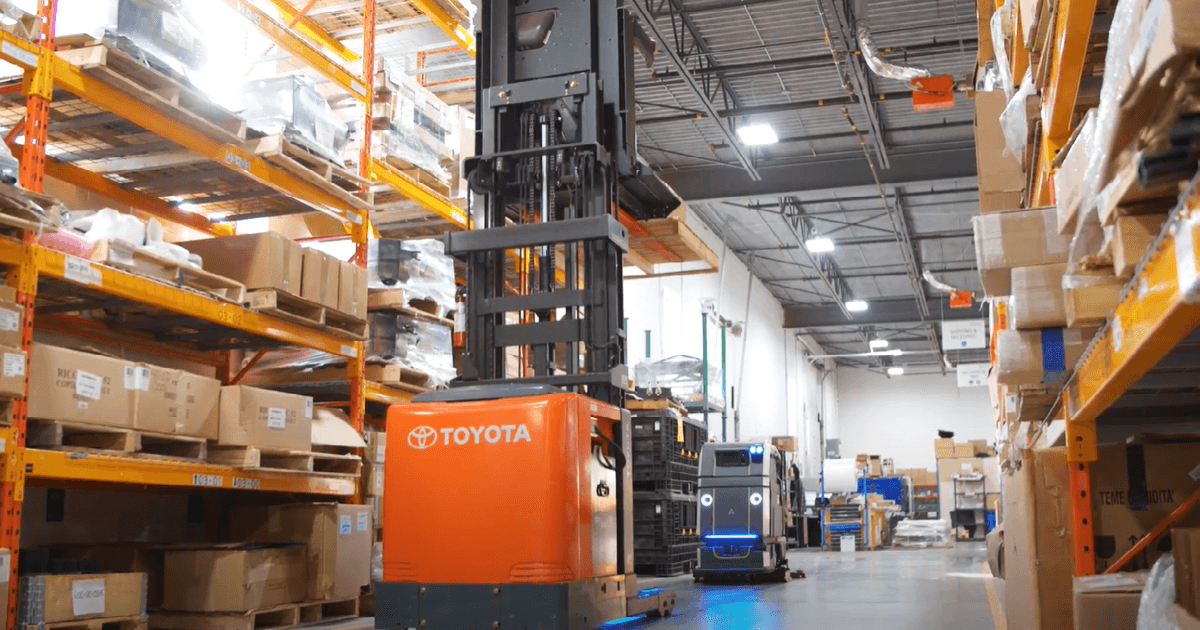
How does supply chain automation contribute to warehouse safety?
Over the last five years, we’ve had the opportunity to visit a wide range of manufacturing and warehouse facilities around the world and discuss the operational challenges faced by managers leading those facilities. Warehouse safety is always near the top of the list of priorities.
That shouldn’t be a surprise. Warehouses are intrinsically high-risk environments, with blind intersections, narrow passageways, people, forklifts and other equipment moving continuously around a noisy, crowded space, 24 hours a day. One reason why 3PLs and warehouse operators are deploying Neo floor-scrubbing robots throughout their networks is Neo’s ability to safely and autonomously navigate and clean these busy, industrial environments, reducing the risk of injury to custodial workers.
4.6 million workplace injuries a year in the USA alone
Alongside protecting the welfare of employees, deploying autonomous robots makes sound financial sense. According to a 2017 National Safety Council and U.S. Bureau of Labor Statistics report, a workplace injury occurs every seven seconds in the USA. That’s 4.6 million accidents per year resulting in the loss of 104 million days of production. Interestingly, the top three injuries in 2017 were overexertion, contact with objects or equipment and slips, trips, and falls – risks easily mitigated through automation.
While you’d expect public service workers like police officers and firefighters to be the occupations reporting the highest number of workplace injuries, you may be surprised to learn that Transport/Shipping and Manufacturing/Production take positions two and three.
Neo floor-scrubbing robots: developed with safety as a priority
Traditional autonomous equipment, such as pallet movers and material transport cars, were confined to fixed paths, and personnel avoided placing products or equipment on these paths. Advanced robots like Neo are truly autonomous, determining the safest, most efficient path based on the real-time location of obstacles.
We designed and built Neo from the ground up with safety as a priority, equipping the robot with the robust features required to deliver high-performance, autonomous warehouse floor cleaning.
-
Leading-edge 3D cameras, lasers and sensors work together with Avidbots’ proprietary object detection and navigation software to deliver advanced collision avoidance. Neo’s sensors can detect objects as low as 16 centimeters (6.3 inches) from the floor, allowing navigation around floor stacks, stock awaiting storage and pallets.
-
Warehouse safety features such as slow-down zones (programmed areas where the robot should reduce speed and proceed with caution) and no-scrub zones (areas where Neo should lift its cleaning head to protect rails, floor tape and other delicate floor surfaces) protect people, stock and capital equipment.
-
A direction-indicating safety light that projects from the front of the robot ensures that Neo is traveling safely around equipment and personnel, even in situations that are difficult to navigate, such as when the robot is approaching a blind corner.
-
Front and side rubber bumpers minimize the risk of damage to equipment or to the robot itself if a bump, or impact, does occur. If a fixed object is pressing against one of Neo’s safety bumpers, the robot will not move until an operator resolves the situation and confirms it's safe to continue.
Supply chain automation is no longer confined to the material handling, storage and retrieval functions of warehouses and distribution centers. Floor-scrubbing robots help increase supply chain productivity and efficiency while reducing cost and improving warehouse safety.
It’s why facilities managers around the globe are turning to Neo, the next generation in warehouse floor cleaning with built-in warehouse safety features. Download our new eBook, Boosting Warehouse and Supply Chain Productivity with Floor-Scrubbing Robots, to learn more.
Related articles
Avidbots 블로그를 구독해 보세요!
Avidbots에 대한 소식과 최신 산업 및 기술에 대한 다양한 정보를 받아 보세요.